The content of the article
Scientists conducted a lot of research, during which it was found out what kind of pain is the most intense and unpleasant. It turned out that the pain during childbirth, ear and toothache is the most difficult. Indeed, toothache is so powerful and all-consuming that it is very difficult to endure. There are two reasons for this. Firstly, in the gums there are a lot of nerve endings that are acutely responsive to any inflammatory processes. Secondly, a tooth is a hard tissue that cannot grow. But inside the tooth with inflammation, the nerve (pulp) increases, which swells and presses on the hard tissue. This leads to severe and unbearable pain. Unfortunately, most often painful sensations overtake us at night, when there is no question of going to the doctor. That is why you need to know how to get rid of toothache with home remedies. In this article, we will talk about the causes of toothache, and also deal with the main ways to suppress it.
Why tooth hurts
Pain in a tooth is most often caused by an inflammatory process that can develop against the background of various diagnoses.
- Caries. This is the most common cause of toothache. Caries is a lesion of enamel and dentin that moves deep into the tooth, damaging all large areas. Do not try to consider the presence of caries on your own, entrust it to the doctor. It happens that a small hole can be between two teeth, it is impossible to make out on its own. And it also happens that a huge black cavity is hidden behind a small hole, which hit almost the entire tooth, reaching its roots. To save the patient from tooth loss, the doctor should drill the entire carious cavity of the tooth, and then put a seal.
- Pulpitis. Inflammation of the pulp (nerve) is a complication of caries. If caries is not treated in time, the lesion descends to the very roots, reaching the pulp and leading to inflammatory processes. Since this is a nerve, any, even slight inflammation, is felt very sharply, the pain can be sharp or throbbing, worse with palpation and the use of sweet, cold and hot. Pain with pulpitis is very difficult to remove with medication.
- Flux. This is an infectious and inflammatory process in the periosteum and jawbone. The pain with flux is very strong, it can give to the ear, eye, neck. At the same time, the gum swells strongly, acquires an inflamed red hue. If the swelling has passed noticeable on the face, most likely an abscess has occurred. The disease is extremely difficult - with an increase in temperature, an increase in lymph nodes, etc.
- Eights. Teething wisdom is also considered one of the most painful processes, which may be accompanied by fever. In this case, one does not always have to wait - perhaps the doctor will facilitate the process if he makes an incision on the gum or completely removes the problem tooth.
- Enamel damage. This pain is quite moderate, it occurs only when eating sweet, spicy, cold and hot dishes. That is, open and unprotected dentinal tubules react sharply to external stimuli. Enamel can be destroyed due to a lack of minerals in the body, with bruxism, due to trauma, etc.
- Incorrect filling. Sometimes a toothache does not go away even after treatment by a dentist. Is this normal? As a rule, after treatment, toothache may be present for some time, but it must invariably gradually recede.If the pain does not go away or intensifies, most likely the treatment was not competent enough. This can happen if the carious cavity was not completely cleaned out - inflammation in this case continues to develop. Incorrectly selected filling material, an allergy to filling material, leaving voids inside the root canal - all this can provoke a relapse of the disease.
In addition, toothache can occur after tooth extraction - it will hurt until the hole is tightened. Pain can be felt under improperly placed braces or under the crown. Also, toothache can occur against the background of an injury or chipped tooth. In all these cases, toothache requires a visit to the dentist. But, unfortunately, it is not always possible to get to your doctor right away. That is why it is necessary to be able to get rid of toothache yourself.
Medications for toothache
The first thing we do with a toothache is to look into a home medicine cabinet. Indeed, there can be many useful medicines that can quickly and safely relieve an unpleasant symptom.
- Painkillers tablets. First you need to remove the pain so that the body does not feel it so acutely. To do this, you can drink any painkillers that you have at home. It can be Ibuprofen, Analgin, Paracetamol, Aspirin. Baralgin, Ketanov, Nurofen, etc. are considered more serious and powerful drugs.
- Antiseptic compounds. If you often have a sore throat, there will probably be antiseptic sprays and rinses in the medicine cabinet. The spray can be sprayed directly onto the tooth area - this will help temporarily relieve pain. It can be used to treat Hexoral, Septollet, Ingalipt, etc. Be sure to make an oral rinse based on Furacilin, Chlorophyllipt, Miramistin.
- Drops. It is very convenient to use drops - they give an instant effect, have a bactericidal, antiseptic, analgesic and soothing effect. Among them, one can distinguish Phytodent, Stomagol, Dentinoks, Dent. There are also simple but very effective drops called Dental Drops. They can be used in different ways - to pipette onto a diseased tooth, to make a rinse on the basis of drops or to drip a little medicine on a cotton swab and apply to the affected area.
- Antibiotics. They should be taken only after the appointment of a doctor, often antibiotics are included in the complex treatment of flux, they are necessary when removing complex eights. Antibacterial therapy suppresses inflammation, but is not effective without dental treatment.
If all this is not at hand, you can sprinkle cotton with a tablet of dipyrone, streptocide or moisten it in novocaine, attach it to a painful tooth and clamp it on the jaw. After a while, the toothache will recede.
How To Relieve Toothache With Home Remedies
In the piggy bank of folk wisdom, there are many recipes that will help quickly and safely relieve toothache.
- Rinse. This is the most proven and reliable way to get rid of pain. You can rinse your mouth with anything - salt water, sea water (salt, soda, iodine), a solution of propolis alcohol tincture. Very well relieve pain decoctions of medicinal herbs - chamomile, calendula, sage, nettle, plantain. You can dial a little vodka or alcohol into the oral cavity, keep at least three minutes near a diseased tooth. The alcohol composition acts as an anesthetic.
- Lotion. You can moisten a cotton wool in the juice of onions, garlic or aloe, attach to a diseased tooth, pinch the jaw. Such a compress will give quick relief. It is also useful to moisten the fleece in ammonia or tincture of calamus root.
- Massage. The science of acupuncture suggests that you can distract from toothache by massaging the ear from the affected tooth. Gently knead the ear from the earlobe to the apex.The outflow of blood from a diseased tooth to the ear will calm the discomfort a little.
- Compress. Valerian leaf, a slice of plantain root, chewed horseradish root, and oregano color can be applied to a diseased tooth.
- Cold. With severe toothaches, you can take ice, wrap it in a towel and attach it to the cheek from the side of a diseased tooth. This will help relieve swelling, inflammation and reduce pain.
It is sometimes advised to apply propolis to a diseased tooth. Do not do this, because simple carbohydrates are the best food for bacteria and microbes, inflammation after this "treatment" will only intensify.
Toothache during pregnancy

During the bearing of a child toothache visits a woman very often. There are many reasons for this. Firstly, her body is rather weak, it works in a double mode, immunity is suppressed. Secondly, fetal growth requires a large amount of calcium, a deficiency of this microelement affects the condition of teeth, nails and hair. During pregnancy, women’s teeth become more loose, often crumble, more prone to tooth decay. Therefore, during this period, you need to consume more protein and dairy products, carefully monitor oral hygiene. If a toothache occurs, such painkillers as Paracetamol, Analgin, Nurofen are permissible. To minimize the amount of medicine that will reach the baby, doctors recommend using painkillers in the form of rectal suppositories - for example, Papaverine. If you came to the dentist with a toothache in early pregnancy, be sure to tell the doctor about your situation, he will choose a more gentle anesthesia.
A toothache in a child - what to do?
In very young children, toothache can be associated with teething. This process is very painful, it is tolerated by all children in different ways, sometimes accompanied by fever and a change in stool. During this period, you need to help the baby as much as possible - use painkillers for gums and chilled teething, in difficult cases, give your child pain medications.
Remember that painkillers, rinses, compresses and lotions are just a temporary solution that will allow you to relieve pain before going to the doctor. If the tooth no longer hurts, consult your dentist anyway. It is important to understand that inflammation will not go anywhere, tooth decay should be treated. Take care of your teeth, you won’t have a second one.
Video: how to quickly relieve toothache without pills

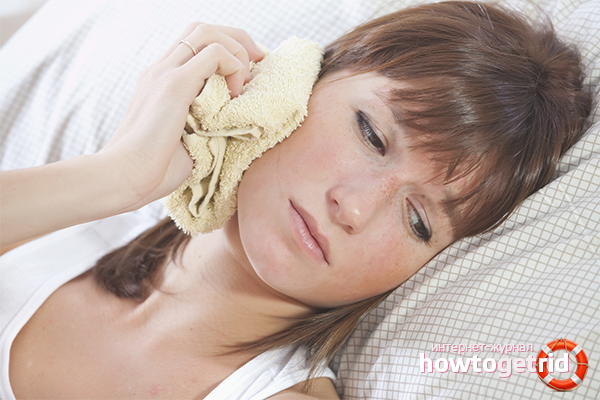
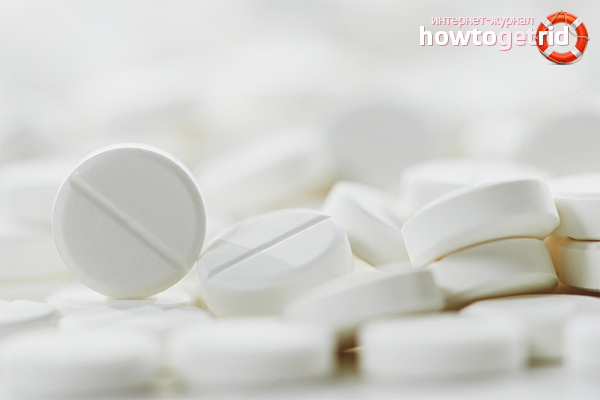
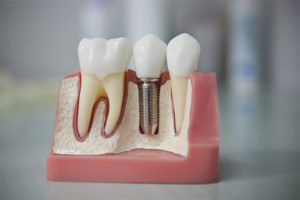

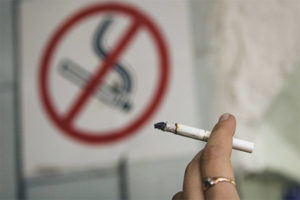
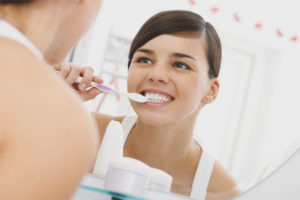
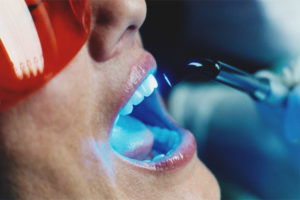
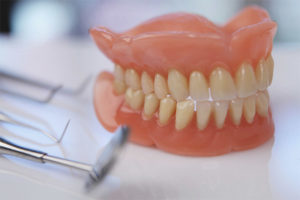

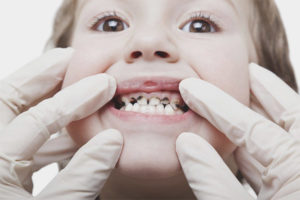
Submit